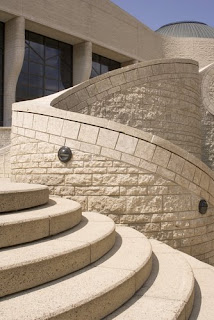The Fountainhead by Ayn Rand
"Happiness is that state of consciousness which proceeds from the achievement of one's values."
DIRECTIONS: By Monday, 4/20, read Part IV (p. 503-694). This will take you to the end of the book! Answer five of the twelve questions posted below. Each response should be at least 2-3 paragraphs long.
.
1.) Roark's resort at Monadnock Valley provides for a disillusioned young man who had always wanted to write music "the courage to face a lifetime." Given that Roark had never met the boy before, and would never see him again, what point does the author make regarding the nature of creative achievement? Contrast this episode with the effect that Toohey's counseling has on the young people who come to him for advice. Which has a benevolent impact on other men--Roark's life of personal accomplishment or Toohey's call for sacrifice to the collective?
2.) Although Roark receives the commission for Monadnock Valley as part of a swindle by the owners, his work is so highly valued by the customers that the resort makes money despite its fraudulent origins. Further, Roark has been kept busy over the previous several years designing a variety of small structures. "It was as if an underground stream flowed through the country and broke out in sudden springs that shot to the surface at random, in unpredictable places." What is the nature of this "stream" that now flows in recognition of Roark? There is an old saying that "the truth will win out." What does Ayn Rand show regarding society's ultimate response to the great work of a creative genius?
3.) Gail Wynand hires Roark to build a fortress to protect Dominique from human society. Despite the irony, there is almost an inevitability to this event. Why does Wynand choose Roark from among all the architects of the country? Why is it fitting? What is the essence of their bond?
4.) As Roark enters the building that houses Wynand's paper, he remembers Henry Cameron's words that Wynand and the mindless conventionality that his papers represent are the fundamental cause of the world's ills. Despite this, Roark comes to love and respect Wynand beyond all others, even stating at one point, "You have been the one encounter of my life that can never be repeated." Why does Roark love Wynand despite the deathbed warning against him from Cameron? Despite his flaws, what major virtues does Wynand possess?
5.) By this time, Peter Keating's career is badly slipping, as Toohey pushes his new protege, Gus Webb. Why did Toohey support Keating in the first place? What is Toohey's purpose in promoting the careers of such mediocrities as Keating, Gordon Prescott, Lois Cook, Ike the Genius, and Webb? In what way does his purpose integrate with his anti-Roark campaign?
6.) Why is Roark's brilliant design for Cortlandt Homes altered by Gus Webb and Gordon Prescott? What factors in society make it possible? Why is Keating, despite his best efforts, powerless to stop it?
7.) In dynamiting Cortlandt Homes, Roark breaks the law. What is his moral and philosophical argument for the rectitude of his action?
8.) Dominique assists Roark in the dynamiting, and tells him that she will wait for him even if he serves time in prison. She is no longer afraid of what society will do to him. What is the essence of Dominique's change of thinking? What error has she previously made that she now corrects? What enables her to finally see the truth? How does her change of mind integrate with the novel's theme?
9.) When Wynand defends Roark in The Banner, it is the first time that, in the deepest sense, the paper belongs to him and not to the crowd. This is exactly why his crusade fails. Why does Wynand fill the paper with his own values only now? Why is it too late? Explain Wynand's failure to save Roark--and himself--in terms of the mixed premises that form the essence of his character.
10.) Wynand closes The Banner rather than turn control of it over to Ellsworth Toohey. What kind of defeat does this represent for Toohey? In terms of Toohey's two principal goals--to prevent Roark's success, and to control The New York Banner--he fails utterly. What point does the author make regarding the nature and power of evil men?
11.) In his courtroom speech, Roark discusses the outstanding innovators who have carried mankind forward, arguing that it was their independent thinking--not compliance with their brothers--that enabled them to reach their monumental achievements. In terms of some of history's great independent minds--Galileo, Darwin, Pasteur, the Wright Brothers, et. al.--explain and defend Roark's thesis.
12.) At the end of the novel, Roger Enright buys Cortlandt Homes and hires Roark to build it in accordance with his original design. Wynand hires Roark to erect the Wynand Building, the world's tallest skyscraper. Roark marries Dominique Francon. He has succeeded completely, and on his own terms. What point does the author make regarding the nature of success? In contrast to the evil Toohey, what point does she make regarding the nature and power of the good?








